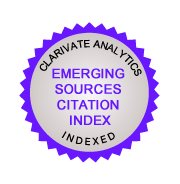Most read articles by the same author(s)
- Zaiton Hassan, Nor Afiza Hasnan, Surena Sabil, Community Demands and Resources and Work-Family Conflict: Case Study in Kuching Sarawak , International Journal of Management Studies: Vol. 21 No. 1 (2014): International Journal of Management Studies (IJMS) Vol. 21, No. 1 June 2014













